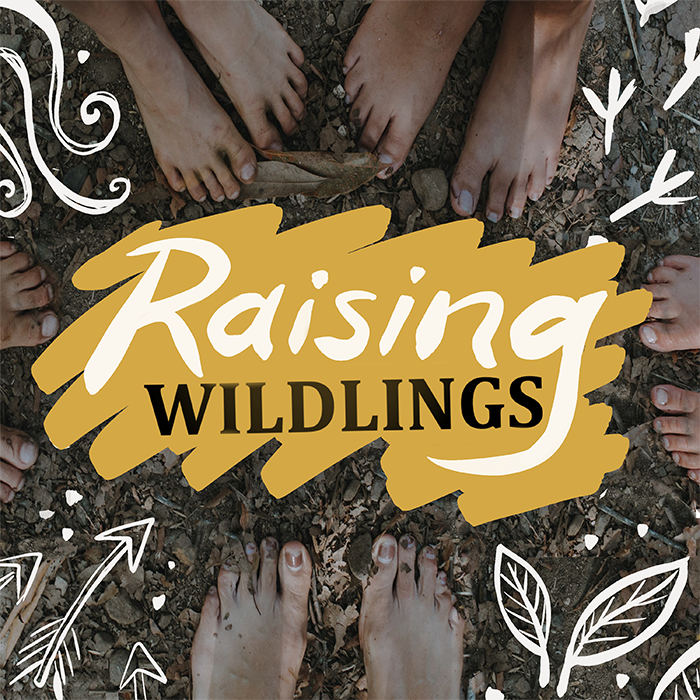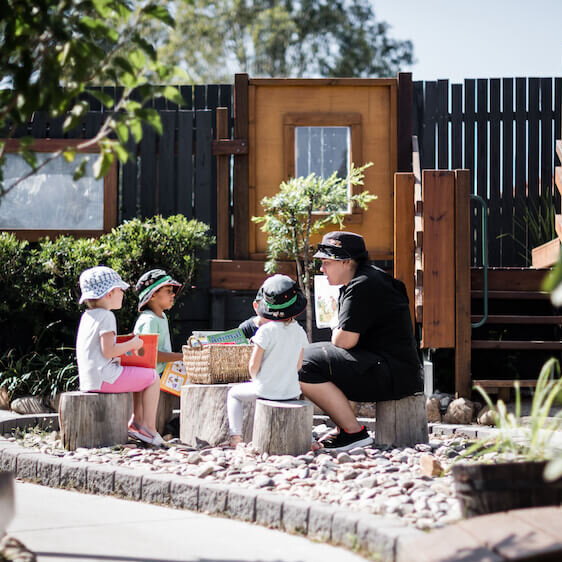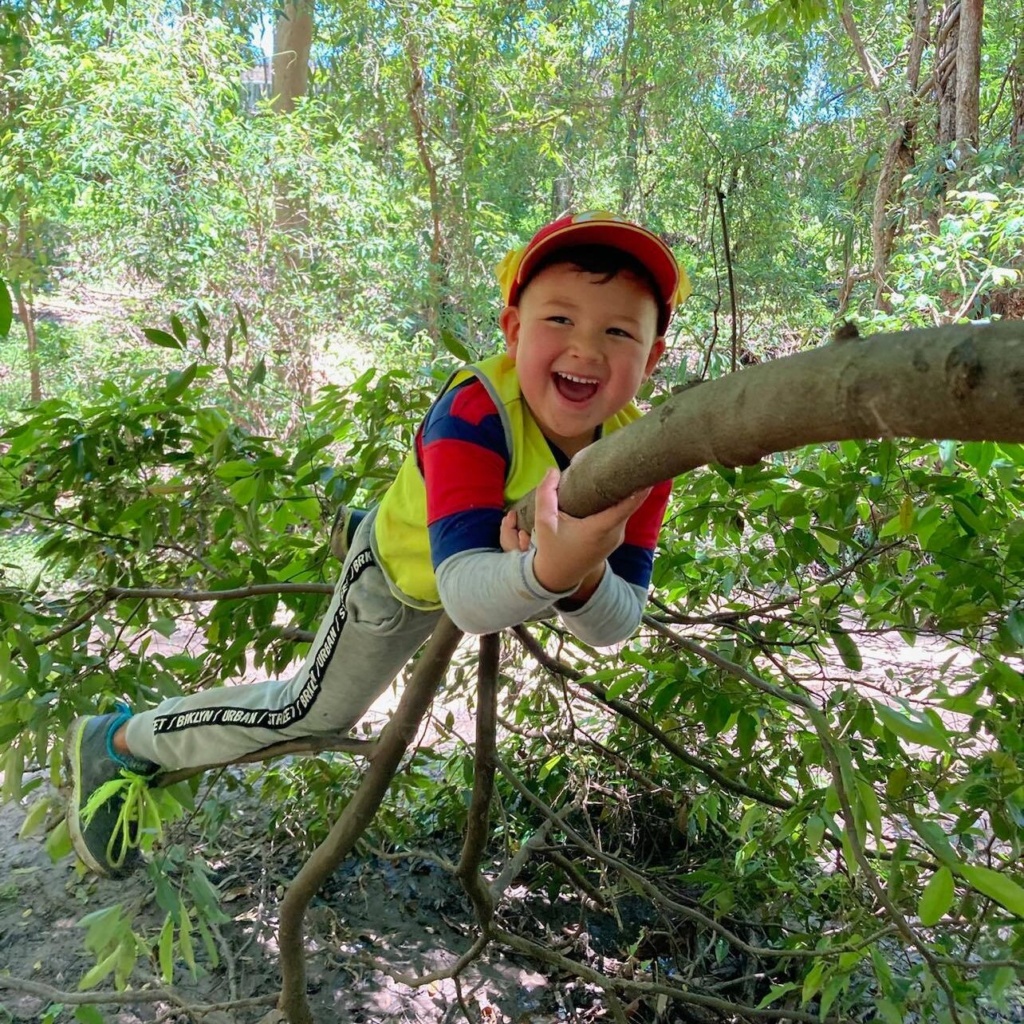What an incredible asset online media has become when it comes to raising or educating children. From YouTube to Instagram, there’s a wealth of expert information at your fingertips that previous generations simply didn’t have. Thanks to online media, parents and educators can now access an array of information, tips, and tricks on child development, parenting, and education.
And of course, podcasts are an excellent way to learn while on the go. You can listen to them while commuting, during your daily walk, or even before bed. Here we have compiled a list of our favorite parenting and child development podcasts, divided into categories for parents and educators. Check them out!

A podcast about parenting, alternative education and stepping into the wilderness with children. Each week, Nicki Farrell and Vicci Oliver interview experts who inspire them to answer questions about parenting and education. They also share stories from families who took the leap, and are taking the road less travelled.
Maggie Dent, one of Australia’s favourite parenting authors and educators gives you practical tips and answers to your real-world parenting dilemmas.
Each episode of Unruffled addresses a reader’s parenting issue through the lens of Janet’s respectful parenting philosophy, consistently offering a perspective shift that ultimately frees parents of the need for scripts, strategies, tricks, and tactics.
Listen to conversations with experts on a variety of topics related to children’s mental health. Episodes offer practice wisdom from experts in the field and will give you an insight into the work and values of the National Workforce Centre for Child Mental Health.
Based on the popular RCH Kids Health Info fact sheets, the Kids Health Info podcast explores common topics and concerns with experts in children’s health. Hosts Margie Danchin, Lexi Frydenberg and Anthea Rhodes are all paediatricians and mums, so they know first-hand what keeps parents up at night. Every episode features guest experts in a range of child and adolescent health specialties, and lots of practical tips and advice.
Hamish Blake chats with other dads he really admires about their approach to ‘dadding’, and in the process hopefully learn a little, steal some of their hard earned wisdom and help dads dad a tiny bit better.
All humans learn through play. Join Kristen RB Peterson of Learning Wild as she chats all things early childhood education, preschool, nature and forest school, homeschool and parenting.
Hosted by international keynote speaker, educator and founder of Wearthy; Lukas Ritson, Play it Forward is an educational podcast about the importance of play. With the increase of technological advancement, it has never been harder to get kids playing outside
Early Childhood perspectives is a fortnightly podcast devoted to exploring the often overlooked concepts and issues of the Australian Early Years Sector.
This podcast covers meaningful topics in early childhood education with some of the sector’s most experienced educators and subject matter experts. With each short episode, its aim is to provoke minds and inspire excellence in early childhood education.
Barbi Clendining from Firefly HR and Saurubh Malviya from We Belong Education have teamed up to bring to you a fun and informative conversation and talk about every aspect of the Out of School Hours profession.
OK, we fibbed. It’s not JUST Australian podcasts. Here’s a few international podcasts that are quite popular with the kids these days. (and by kids, we don’t mean baby goats, or children really, but we’re just trying to sound cool)
Building creativity one leaf and bolt at a time. Join Dr. Carla Gull, American educator and mother of four boys, as she talks about getting outside and exploring loose parts.
A funny take on parenting with UK hosts Rob & Josh as they share their tales of parenting woe and chat to celebrity parents about how they’re coping, or not coping.
Join American clinical psychologist and mother of three Dr. Becky Kennedy on her weekly podcast, as she takes on tough parenting questions and delivers actionable guidance—all in short episodes, because we know time is hard to find as a parent. Her breakthrough approach has enabled thousands of people to get more comfortable in discomfort, make repairs after mistakes, and always see the good inside.
Each episode discusses issues today’s fathers face navigating work, parenthood, relationships and play. We share stories of dads who are active and engaged in the decisions, the drudgery, and the pains and the joys of parenthood. Our parenting podcast not only brings modern dads into the conversation, but also – regardless of gender – our spouses and partners, friends and colleagues, and leaders in business, entertainment and media.
We live in a digital world, and for many of us, our small children are quicker to learn and use technology than we are. For a parent, letting your child use technology can be a bit of a break, so you can have a few minutes to work, cook, tidy up or even just have some peace. And increasingly, children are required to have their own devices for their education once they get to big school. Technology allows them to learn things in ways a book or even a television show can’t teach them, but it also comes with risk of which parents need to be aware.
Here are our top tips on how to keep your child safe while using devices.
Engage with your child on their digital experiences. Parents often talk about what a child does during their day – how school or daycare was, what they had for lunch, what they’re reading, but do you talk to them about what they’re doing online or on devices? We recommend being an active participant with your child while on the phone, iPad or computer and watch, read or do online activities with them. Be curious about what interests them and ask questions — at the same time, you can gently introduce online safety tips, such as not clicking on pop-ups, or question links coming from sources they don’t know before they click. Remind your child to always talk to you about anything, and to come to you if they find something online that makes them feel uncomfortable or if someone outside their immediate trust circle contacts them online. Make those conversations commonplace, because the more you interact with your children during and about screen time, the better.

Digital footprints can last for a long time. Talk with your children about what the internet is, and how (when they’re older) what they post can influence people’s opinions of them—good or bad. This is also a reminder to you about considering what you post, especially when it comes to your child. Asking them early if you may take their photo, and if you plan to share it on social media, let them know who will see it, why you want to share it, and respect their decision if they don’t want to share it. This shows respect for your child, models consent and respectful data sharing practices. The more they know about this, the better off they’ll be when it comes to making decisions about their online presence when they’re older.
Children under two years of age are not recommended to have any screen time outside of occasional video calls, according to national and international guidelines, such as from Early Childhood Australia and the American Academy of Pediatrics. Children younger than age two are more likely to learn when they interact and play with parents, siblings, and other children and adults. After age two and until at least age five, it’s suggested that little eyes only be exposed to one to two hours of high quality programming per day.
Too much screen time and regular exposure to poor-quality programming has been linked to:
Unstructured playtime is more valuable for a young child’s developing brain than is electronic media, but not all screen time is ‘bad’ and can even be beneficial.
Sites such as Children and Media Australia and Common Sense Media can help parents understand the quality of the media and apps that their children are using with programming ratings and reviews.
Parental controls are software tools that allow you to monitor and limit what your child sees and does online.
They can be set up to do things like:
The Australian government’s eSafety Commissioner is a great resource with important information on how to protect children of all ages when they spend time online.

Obviously, with the recommended screen time guidelines for small children to be somewhere between zero to two hours daily depending on age, your child’s time should be mostly device-free, but this is a great idea for all family members to carve out some time each day without devices to focus on other interests and each other. Your children are always watching what you’re doing, and seeing you keep the phone or iPad away so you can read or play with them, or even focus on other passions or hobbies of your own, models healthy behaviour when it comes to devices. As mentioned above, you can set time limits on devices, with both Apple and Android, and switch things up so that when the limit is up, go do something outside.
Maybe as a family everyone can agree to device-free time together, such as at meals or weekend mornings – whatever works for you. Research shows that devices shouldn’t be used for at least an hour before bedtime to ensure your child has the best quality sleep.
You could also agree to areas in which devices are to be used such as living rooms or the study. If you keep mobile phones and other devices out of your child’s bedroom at night, your child won’t be able to play games or potentially wander into online territory you don’t want them to see. This can also stop your child being disturbed in the night by messages and notifications. Reducing the areas in which devices may be used also allows other areas for connection – like car rides and restaurants, as a family.
Resources:
At Little Scholars School of Early Learning, we’re dedicated to shaping bright futures and instilling a lifelong passion for learning. With our strategically located childcare centres in Brisbane and the Gold Coast, we provide tailored educational experiences designed to foster your child’s holistic development.
Let us hold your hand and help looking for a child care centre. Leave your details with us and we’ll be in contact to arrange a time for a ‘Campus Tour’ and we will answer any questions you might have!
"*" indicates required fields